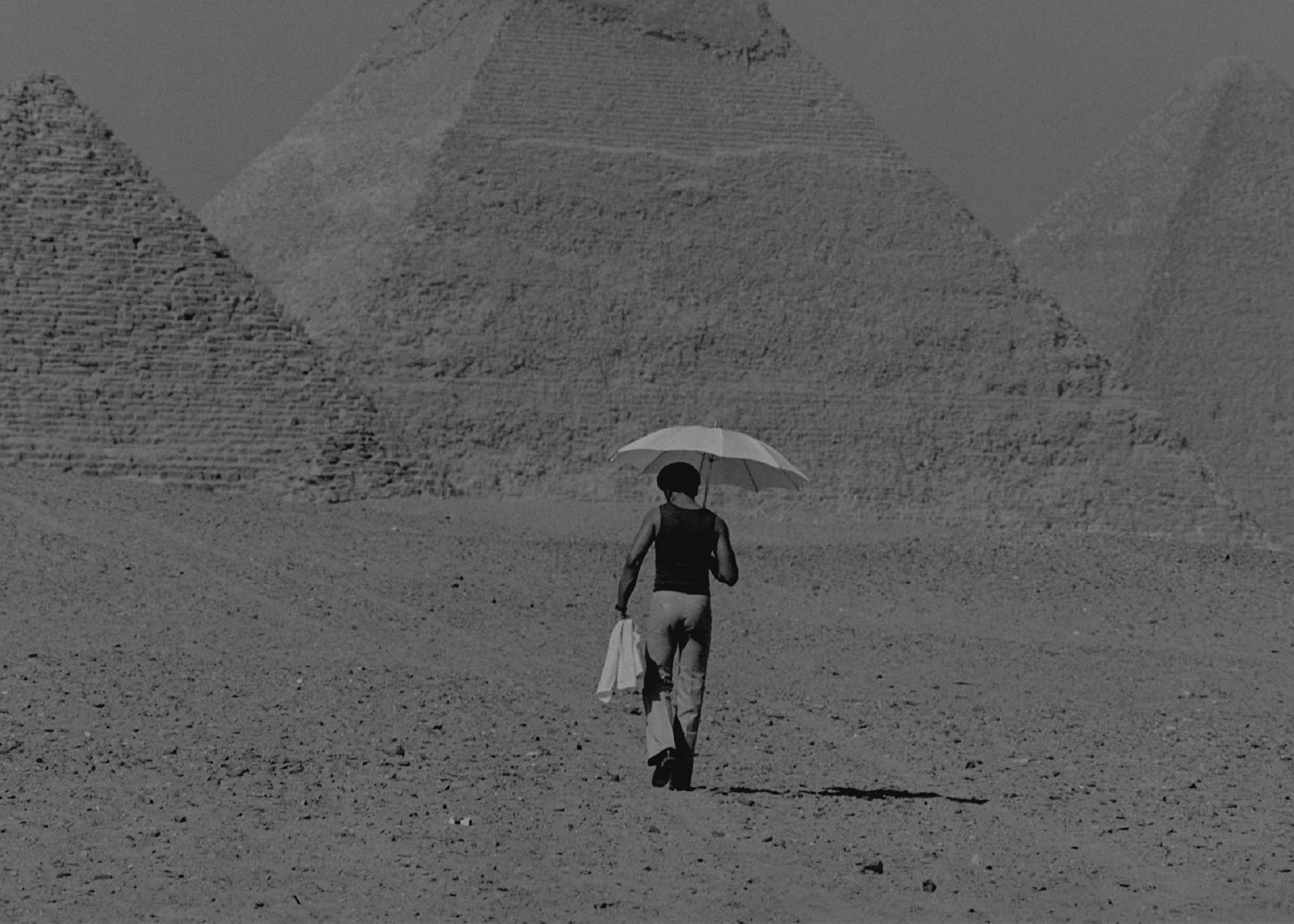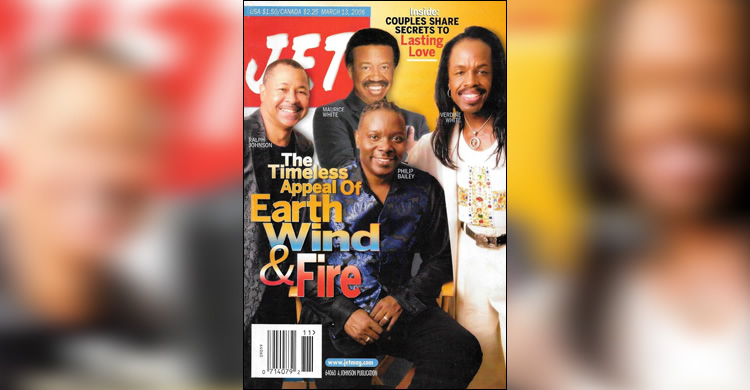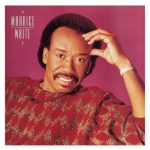Jet Magazine Interview (March 13, 2006)
Source: Jet Magazine (March 13, 2006)
During a March 2006 cover interview with JET magazine, the band’s frontrunner chatted about forming the ensemble and leaving a legacy that will linger for a lifetime. Get into it below, and reflect on the megastar’s incredible contributions.
JET: All right, Mr. White. The first thing, looking back, it was 1970 I think when you started with the group?
Maurice White: I actually started in 1969.
JET: When you hooked up with Booker T?
MW: No, I had a bunch of song writers that I was working with, Donald Whitehead and Wade Filmans, and so we decided to have a group. But during that period of time I was working with Ramsey Lewis.
JET: Right, ’cause you left Memphis and went to Chicago.
MW: Yeah, so I was working with Ramsey Lewis. When I first got to Chicago, I kind of piddled around for like a few years ’cause I was going to college. And I got a call from Chess Records that they were looking for a band, so I went down to Chess and auditioned with 20 musicians. We all were in college, you know, so we just, oh, we auditioned a big band for Leonard Chess. So he didn’t like the band, but he kept five of us. So the five of us that he kept, we got into the recording industry.
JET: Were you working for Ramsey Lewis then?
MW: No, it was before Ramsey. Ramsey used to record for the label, Chess Records.
JET: Oh, so that’s how you met him.
MW: That’s how I met him. He used to come down and watch me in the studio all the time. I didn’t know he was watching me. So as soon as there was a vacancy open, he hit on me to go on the road with him.
JET: That must have been fun.
MW: It was. That’s the first time I had appeared in front of so many people, 10 thousand people.
JET: Really?
MW: You know, a young kid?
JET: Yeah, you were like, what, 20 years old?
MW: Yeah, right. I’m like, totally excited. I done made the big time.
JET: Little did you know….
MW: Yeah. [chuckles]
JET: But that was great, to be so young and get around like that.
MW: Yeah. So during that time, of course I met a lot of song writers, and Don Whitehead and Wade Flemons was part of that, and so we worked together and wrote songs. So I had a bunch of material by the time I formed Earth Wind and Fire.
JET: Oh yeah, hundreds of songs maybe by then.
MW: Yeah, we had a bunch of tunes, so we moved out to L.A. I came out to L.A. April 5, 1970.
JET: What made you come to L.A.?
MW: L.A. was, actually, I really wanted to move to San Francisco, but San Francisco didn’t offer as much in the music industry as L.A. promised to be.
JET: L.A. worked out well for you.
MW: Yeah, so L.A. was the place. There was less traffic and everything.
JET: Fewer people too.
MW: Yeah.
JET: Must have been fun back in that time.
MW: Yeah, it was fun ’cause it was all new to us, you know, coming from Chicago where it was cold and the way of living was just different. It was a different level of living.
JET: Yeah, yeah, more wide open.
MW: Right.
JET: Chicago’s kind of dense.
MW: Yeah, we could get more for our money too. At that time.
JET: Truth be known.
MW: Yeah, and we didn’t have very much of that.
JET: Yeah, but you had, you formed the band and moved out here or how did it work?
MW: Well, we had formed the band ‘fore I moved out here, and we had, I brought five people with me.
JET: I know Verdine was….
MW: Yeah, Verdine, I had to send for Verdine later.
JET: Oh, he was still in Memphis?
MW: No, he was still in Chicago. He was in Chicago with my mother. And so that’s the way it all began, you know? Started with us coming out to look after a record that we had out called “La La Time” and it was a regional hit. Very regional.
JET: But all the guys were in place by then?
MW: No, I still had to get a horn section, so I called around. When I moved to L.A., I called around and I finally hooked up a horn section so that extended the band. I wanted a big sound, for like, less men and a big sound. So that’s what happened, that’s the way that sound evolved. ‘Cause I was used to playing big band style, used to playing with a lot of horns. In Chicago, they always used a lot of horns, back in the day, and so I was kind of acclimated to that.
JET: Yeah, I’m sure. And the rest of the guys sort of fell in place out here in L.A.
MW: Yeah, well, what happened is the group that I brought out, we made a first, we made two albums together on Warner Brothers and that group broke up. They came to me and said, “Well, we’ve been wrestling around here for six months and ain’t nothin’ happenin’ so we’re gonna split.”
JET: Not so smart.
MW: No. So they split and went on, we went our separate ways.
JET: And then you sort of, what, checking around again to get some more?
MW: Yeah, well, actually we, Ralph Johnson was the drummer in my new band and Phillip was out here from Denver and Larry and Andrew came as a result of Phillip knowing them.
JET: Oh, that’s usually the way it works out.
MW: Yeah, and then I called, I’d heard this guitar player, Al McKay, he joined the band. And then I’d sent for Johnny, who lived in Louisville, Kentucky. And same thing for him. He came out and then we just started putting it together.
JET: How’d you get everybody in synch, you know, spiritually? You know, with the way the music moved? How’d you get everybody, ’cause they all seemed to feel, believe in the same thing.
MW: Yeah, well, they were all very young at the time.
JET: And you molded them.
MW: Yeah, so they were impressionable. So that was one way. And then it was just the thing of it, we had a family and so it lasted us for a long time.
JET: Yeah, you guys were together for a long…
MW: Fifteen years.
JET: That’s a long time in the music business, traveling all the time too.
MW: That’s right.
JET: But was it when you were growing up that you wanted a music to have messages into it about, you know?
MW: That’s something I evolved into later on. I had always been spiritual from, even as a kid I was spiritual.
JET: We all had to go to church.
MW: Yeah, we had to go to church, like, six days a week.
JET: Just about.
MW: Yeah, New Salem Baptist Church. No, but I used to slip off, slip away sometime and go over to the Sanct-, to the Reverend Patterson’s church, the Sanct-, we could call it the _____ _____…
JET: Sanctified. That’s where I grew up.
MW: Yeah.
JET: Trust God In Christ.
MW: That’s it. I used to go over there, man, ’cause the music was so hip.
JET: Yeah, it was loud.
MW: Yeah, and they had Joe Dukes playing drums, and Joe Dukes was an idol of mine. He was a great drummer.
JET: Oh yeah, I know that music. I was in that church the whole time I grew up. Definitely. But you got, you ended up getting people to believe in like the spirituality of the pyramid. How did all that come?
MW: That came from me studying about my black history, studying my ancestry and then studying a lot of things about Egypt and what was happening over there. And a lot of the Egyptian subject matter related to me ’cause I was looking for my heritage. So this opened up the flood gates.
JET: For a lot of people.
MW: Yeah. I had asked the Creator to teach me. Rather than being taught by the mundane in a normal kind of way, you know, just kind of letting just one idea relate to my whole existence. So what I did is I studied deeply and tried to bring what I had learned back to the fold. And so what happened is that, and it reflected in the music. So I had positive lyrics and…
JET: Very spiritual and moving.
MW: Yeah, very spiritual. And they were…
JET: …Loving.
MW: That’s right. It would touch you in a way you turned, the music would touch you.
JET: Were you amazed at how many people were moved by that, started studying the pyramid themselves?
MW: Yeah, exactly.
JET: Were you surprised?
MW: No, I wasn’t surprised. After awhile it became like a group of people that were just moved by what we were doing. It wasn’t surprising because…
JET: …Yeah, and not a small group either.
MW: No, it was a huge following. And there’s still, there’s a lot of the people still around today.
JET: Oh, I’m sure. I’m sure. But I’m saying black and white talking about the pyramid, what Earth Wind and Fire has taught us.
MW: Right.
JET: That was amazing to me because it was not just the music as everything behind the…
MW: …The concept, the whole concept, just a total concept, the whole package. And the music reflected many, many different ideas as far as we reached a wide mass of people by doing….We stuck to our roots. We were embodied in jazz, R&B, pop, gospel music, the whole thing, the whole gamut.
JET: Yes, that was big time. I’ve still got it all.
MW: Yeah, yeah.
JET: Like I said, it was on vinyl. I didn’t switch over to DVD, I mean CDs.
MW: No, no, no.
JET: No, those old albums, uh-uh, you don’t let ’em go.
MW: That’s right, that’s right.
JET: You just hold ’em. Because it reminds you of where you were when they came. that’s why you don’t want to get rid of that.
MW: That’s right.
JET: You know how that works.
MW: Yeah, that’s right..
JET: But looking back on that, you’re still not surprised at how people were so moved by all of that? How innovative it all….
MW: Well, we started with a college audience. We used to play in a lot of colleges, so the minds, while kids are in school, they’re like very impressionable and so they’re curious. So they would study us like we study other takes.
JET: Oh yeah, people talk about you in the news all the time too. And it’s like those who are on the album, the CD, they were all inspired by you guys, you know that too.
MW: Yeah, that’s something else. It really took off. And I discovered more spiritual things about myself.
JET: Really?
MW: Yeah, I discovered how deep I felt about the evolution of people, and so I tried to put that into song.
JET: Yes, oh definitely.
MW: That always had a double message. If you just wanted to groove and just pat your foot, we gave you that.
JET: Exactly. But if you listened further…
MW: …Yeah, you could…
JET: There’s a message there.
MW: There’s a message there.



